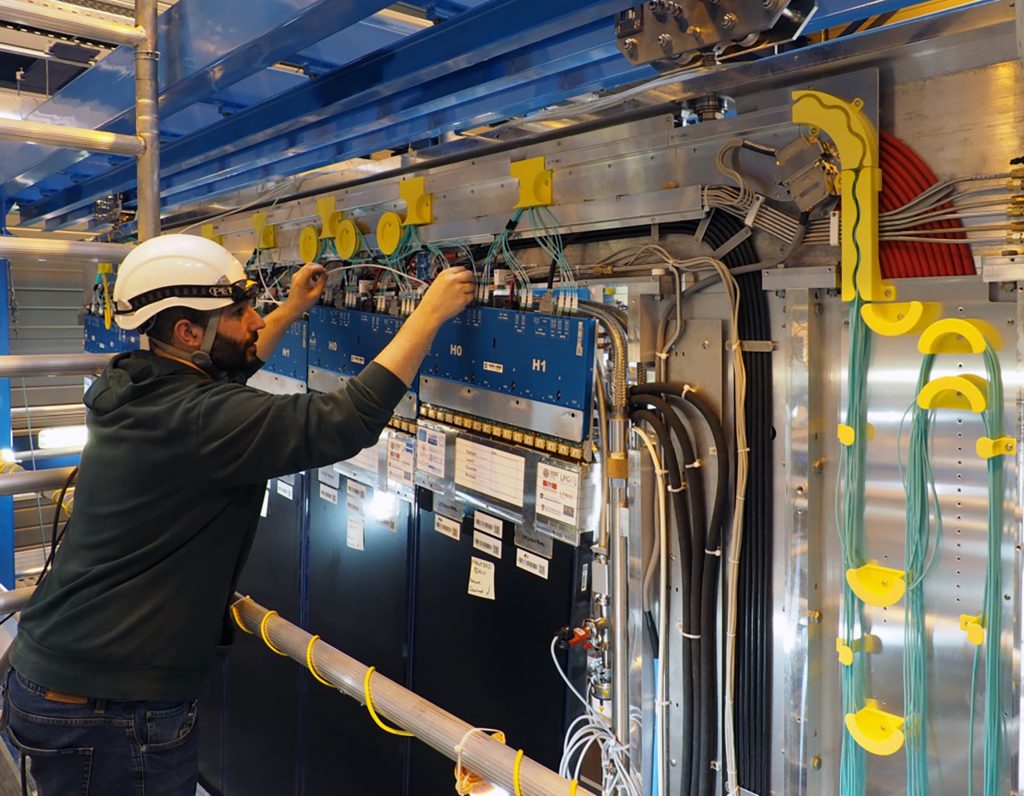Capability
Radiation detectors
IFIC develops radiation detectors for basic research of elementary particle, applying this experience in numerous projects with interest to the industry.
Their participation in Large Hadron Collider (LHC) ATLAS at CERN requires to be at the forefront of the development of technologies to measure the particle trajectory and other specific characteristics. Moreover, LHC operational capabilities demand their equipment to be constantly updated to the latest technological developments or the new available materials.
IFIC designs and assembles silicon sensors, the fixing brackets, the necessary resources for a correct operation and maintenance (refrigeration technology, optical fibers cables, data transmission and control signals technologies) and the mechanical structure.
It also performs the tests of the prototypes with beams of particles, evaluates the cooling system and creates models on a real scale of DEPFET pixel detector, using in the construction of Belle II that is currently being commissioned at the SuperKEKB accelerator (Tsukuba, Japan).
Furthermore, our researchers are involved in several projects for the detection of neutrinos:
- ANTARES, the first neutrino telescope located under the Mediterranean Sea.
- NEXT-NEW, emplaced on Laboratorio Subterráneo de Canfranc (LSC)
- DUNE (EEUU), where the largest and accurate system to control the temperature of the liquid argon has been developed

Tecnology
- LHC (CERN) silicon detectors
- DEPFET Pixels detectors
- New positron emission tomography system PETALO
- Detector for space-based monitoring of radioactive waste.
Business sectors of application
- Big science industry
- Aerospace industry
- Medical equipment and hospital facilities
- Radioactive waste management
Of interest to
- Big science industry
- Aerospace industry
- Medical equipment and hospital facilities
- Radioactive waste management

